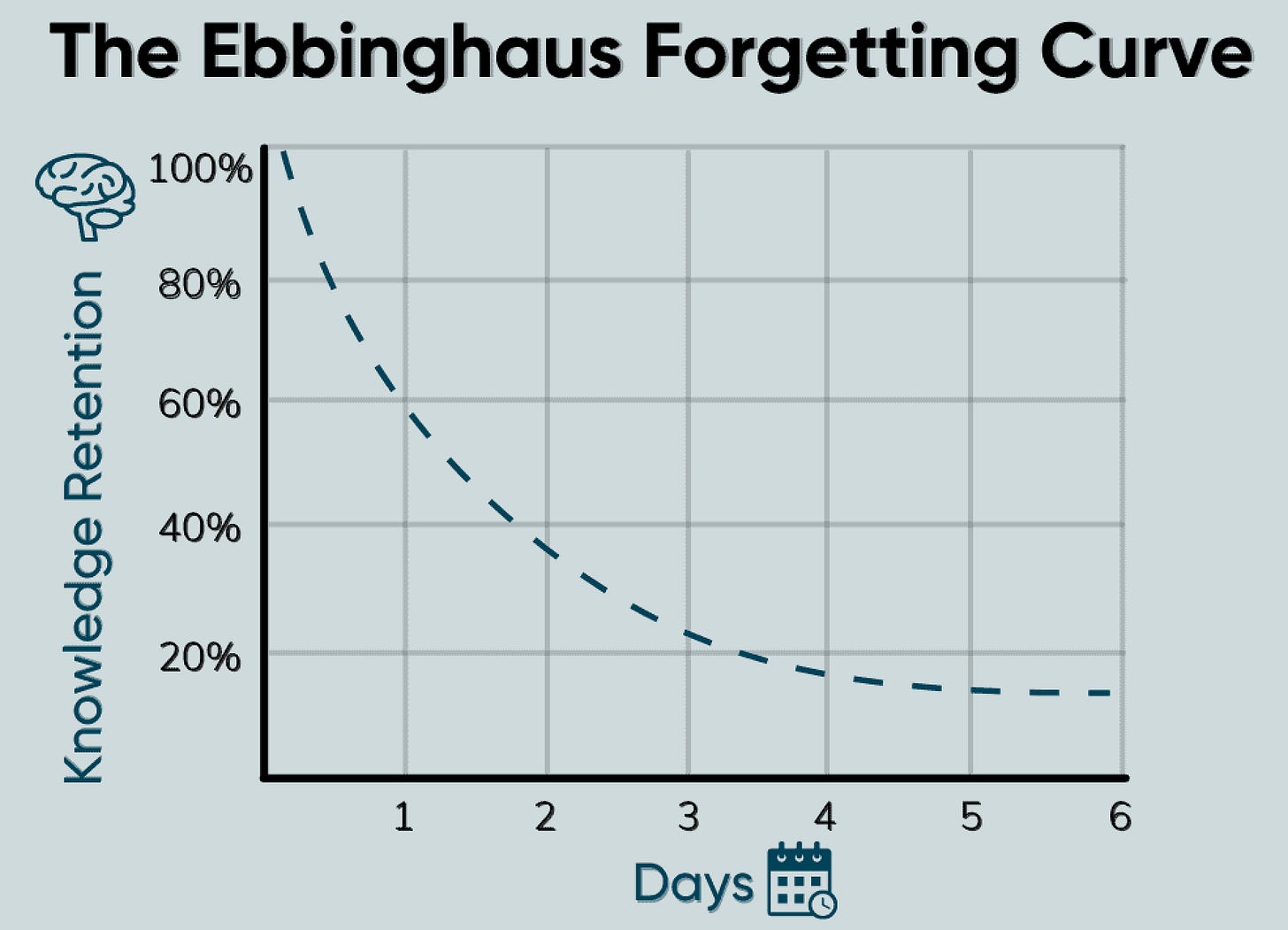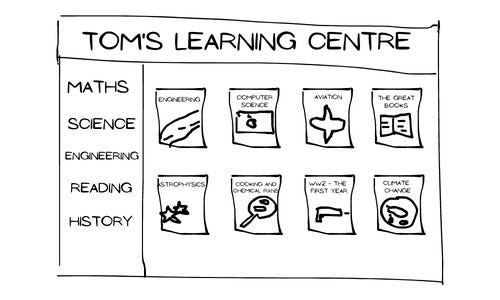How the education system will look in 30 years
The education system has looked the same for 150 years, but recent changes in technology mean that we’re going to see a change. A change for the better.
I think the education system will look dramatically different in the coming decades. Yes, I’m idealistic in general, but I don’t think this change is out of the realms of possibility.
The underlying problem with the existing system is that it hasn’t been built around the customer, i.e. the students. In fact, it’s been built around everyone but the student. I’ve outlined a great number of issues in the education system in writing Bob, the education system previously. Today I want to discuss what the future will look and how it will account for some of the issues.
If you don’t want to read the entirety of Bob, here’s a quick example that highlights the broken system: end of year exams. Cramming for weeks and weeks on a particular topic is known to be a terrible way to improve understanding and knowledge on a topic. Yet, here we are, with a system that universally relies on high-stakes, summative testing. Students are actually lucky if they remember more than 20% of what they learn 7 days after an exam. Hermann Ebbinghaus created The Forgetting Curve in the late 19th Century, and this curve is still proven correct to this day when the student relies on one final summative test (note: there is a solution to improving this curve that I highlighted in Learning How To Improve Your Learning).

The focus on the customer (aka student)
The past couple of decades has seen a dramatic shift to businesses becoming successful by a relentless obsession on the customer. Where taxis were governed by a few license holders and key players ably assisted by some legislation, Uber swooped in and built a transport system that was easy for the consumer. Where record companies would make you buy 30-40 minutes of music by one artist on a disc, Spotify came in and gave the consumer the ability to listen to any song and artist they wanted for a set fee.
There are countless examples of these – Square, Netflix, Stripe, Shopify, Airbnb – they’re all businesses that have succeeded because they focused on making the customers’ lives better to the detriment of other obstacles.
So why hasn’t this shift happened in education yet?
Education isn’t just about learning. Of course it is part learning, but it’s also part daycare, part giving students a place to socialise, part helping students become employable, part helping the student find out what they want to do. It is forced to deal with a lot. Because of this lack of focus, there is a lack of understanding what the purpose of education is. Aligning on what the purpose of education is, therefore, is a necessary first step in predicting the future of education.
What do I think the purpose of education is?
While I’d love to be able to align the world on the purpose of education, I’m not quite in that position. But for the purpose of this article and predicting the future state of the education system, I need to do it, so here it is:
I believe that education should empower us to find out what interests us and encourage us to go deep in those interests. It should stoke our curiosity and encourage active participation. It should teach us how to solve complex problems, work collaboratively, think critically and how to deal with failure. It’s also there to help us learn more about ourselves and be good humans.
But education isn’t just about finding yourself. It should very much equip us with skills as well. While it’s true that most skills can be learned on the job, I still think it’s the education system’s role to delve into important skills-based knowledge. Economics, statistics, physics, computer science are all skills-based topics that should be taught to students in primary and high school.
Does this sound too quixotic? Even I probably think so. So this is what I think the education should strive for, but not be held accountable for. And I want to point out one extremely forgotten factor when talking about the education system: the parents.
The education system plays a big role in educating people as they grow no doubt, but so do the parents. And from my experience in dealing with parents, it’s far too easy to blame the education system when some looking inside (the house) may be warranted.
Anyway, back to the education system.
How I think the education system will change
I believe that a lot of the schooling structures will remain in place, and the hours that school is open will remain similar. I don’t think we’ll all be off in some nature wonderland learning to get close to the earth. I also don’t think we’ll be walking around home in VR goggles all day long pretending to be at school. However, I do think it will look markedly different to how it looks now.
There are two main areas I think will look very different:
- Learning skills-based curriculum; and
- The teacher’s role.
Let’s look at the new way of learning skills first which will happen in what I call The Learning Centre. I’ll follow by looking at the changed teacher’s role to complement this. These two changes will ensure that the education system focuses on improving the student experience above all else.
The Learning Centre: How skills-based learning will happen
All skills-based learning in the future will be done from a centralised digital learning place, which I’ll refer to as the Learning Centre (LC). The LC will be a student’s home for learning and it will be populated with courses from any topic that may be of interest.

These courses will be provided by third parties who will be able to specialise in creating the best courses for learning, and in creating courses on niche topics. Because they all live in the LC, all courses will be digital, although they will have the option to bring in real-world aspects. It means there will be a division between course providers and teachers, which will greatly help the standard of curriculum.
Given the renewed focus on creating great educational content, each course will be varied and improved. You might get old videos (e.g. Feynman Lectures on Physics) and commentary with daily micro-tests; you might have a video game with a project-based learning approach; you might even have VR and AR driven courses with using the flipped classroom teaching method. The point is, the students will have so much more flexibility when it comes to choosing topics and methods of teaching.
It will be up to each school to choose what courses are actually provided to the student, and these will make up each student’s learning options. One of the strengths in what a school will be able to provide is access to the right courses.
The LC removes the need for high-stakes, summative testing with The Student Level
With an all digital learning platform, including assessments, we’ll now have a central place to track a student’s progress over time. I’ll refer to this as The Student Level. Rather than having high-stakes testing at the end of a year where the students receive a numerical grade and never see what they did right or wrong, the students will own their LC and all work done in it. This will include every assessment submitted for every course.
The Student Level won’t be a comparison against everyone else in your class. Rather, it will be a tracker that measures each student’s improvement (of lack thereof) over time. It will include assessment results and comments, as well as tracking topics that the student went deep on, those that were skimmed, strengths, weaknesses and other areas of interest. The Student Level will be private and a true indication of how you’ve been performing over the past months and years. This will be motivating for the students.
It also remove the need for the ranking system in which every student currently competes where each student is given a number that infers how smart (or not) they are. Given the centralisation of testing and courses taken, along with the advancements in AI, a student’s data will be able to be fed into a LLM which future employers will be able to be query. While it won’t give private information, it will be able to very quickly determine if a student is a particular fit for the role.
This won’t be the only use for AI though.
The personal tutor available to students 24 hours a day, 7 days a week
Students will also have their own private AI assistant. People will say this sounds too futuristic, makes the teacher redundant and will negatively impact a child’s social abilities. However, I’m not proposing they do this all from the confines of their bedroom. And I’m certainly not saying that the teacher will need to look for a new career (see below). But good types of AI are the future, and this future will enable students to have access to a teacher 24/7, who is willing to assist with any query and provide step by step assistance. The good types of AI in education are this: the Kahn Academy AI assistant that already exists.
24/7 access to help is not the only benefit of a personal tutor. Think of how many students are too shy or afraid to speak up and ask a question for fear of sounding lost. Think of how uninviting it is as a student to speak in a class unless you’re going to ask a ‘smart question.’ And think of that feeling when the teacher pinpoints you with a question, but you have no idea how to answer it. All of this is solved with your personal AI assistant.
With less focus on course creation, and specific skills-based courses, teachers’ skills will need to shift. I believe they’ll become experts on social and emotional learning (SEL), helping students grow significantly.
The role of the teacher
The teacher role is currently spread too thin across too many areas. They are currently expected to teach skills-based topics, do a lot of admin like writing reports, manage relationships between students, manage relationships with parents, write new curriculum, help students think critically and help students emotionally grow up. This is all while students themselves are going through very difficult social and emotional times. It’s a lot.
The Learning Centre removes the need for a lot of this work, and empowers the teacher to streamline their focus. This streamlined focus will be on SEL and critical thinking. It’s probably obvious why critical thinking is an important skill for students to build, but SEL is equally as important for two key reasons.
- It improves a student’s ability to build relationships, feel and show empathy for others, set positive goals and make good decisions; and
- It actually improves the ability for the student to learn. Losing control of your emotions increases your levels of cortisol in the evening, and having too much cortisol at this time leads to deleterious effects in the brain over time. So being able to regulate your emotions is not just good in the moment, it’s extremely important to your brain health long-term.
Good teachers will focus on growing a student’s skills in patience, calmness, cooperation and kindness, and come from backgrounds of human psychology. The great teachers will do this plus challenge the student’s thinking, foster their curiosity and inspire them to continually love learning. Their background will be in human psychology and humanities.
A final reflection
My last point for now is on reflection (it’s not me reflecting on this article yet) and how poorly the current education system handles this, i.e. they don’t. Reflection is one of the key factors in becoming successful at whatever you do and a key part to growing as a human. The fact that we have bulk exams at the end of a teaching period and you’re typically just given a number of your result is a genuine disaster. In itself, this is enough to prove that the education system doesn’t care about helping students learn. Unfortunately, this is far from the only factor in the current system that proves this.
Now my quick reflection. There is a lot for the education system to change, and because of a huge amount of government and political input, it’s not going to happen with one particular product. There are already amazing products out there helping people improve how they learn (see Duolingo), and there are so many exciting changes on the horizon. We need to ensure that across education, we have a continual focus on improving the student’s experience. I believe we can all work towards it and expect there will be huge changes coming. It’s an incredibly exciting time to be an EdTech entrepreneur. It’s also an incredibly exciting time to be a teacher and it’s an incredibly exciting time to be a student.
